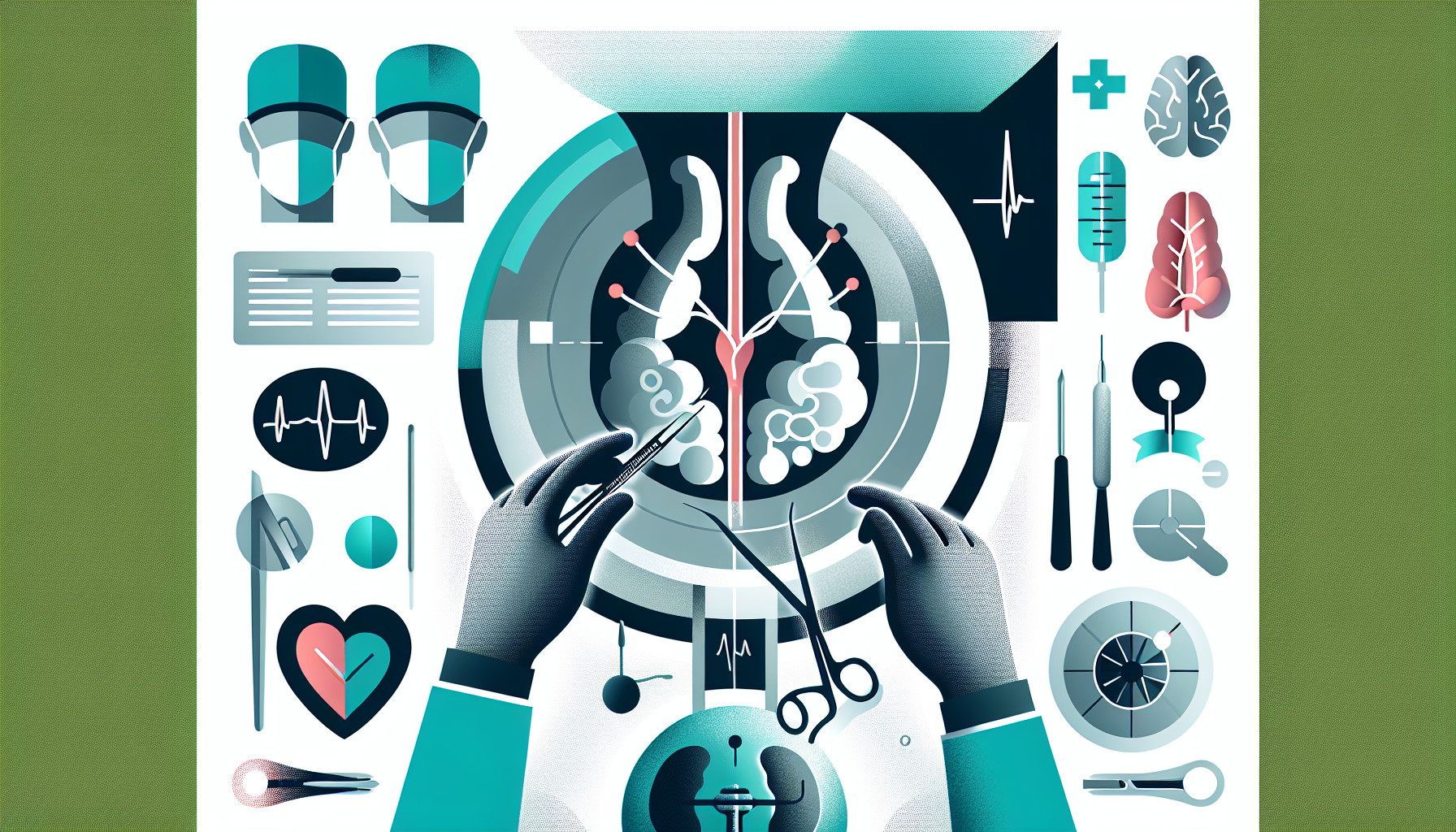Our Summary
This research paper is about the increased use of penile implants as a treatment for erectile dysfunction over the years. While there have been significant improvements in the surgery process and the design of the implants, particularly with the aim of preventing infections, infections still occur and cause major physical and emotional stress for patients. The purpose of this review is to expand the discussion about the best ways to carry out these procedures. It won’t just look at practices in urology (the branch of medicine dealing with the urinary system and male reproductive organs), but will also examine techniques used in orthopedic surgery (which involves the musculoskeletal system) that might be useful in penile implant surgery.
FAQs
- What is penile implant surgery and how is it used to treat erectile dysfunction?
- What advances have been made in surgical protocol and device design in penile implant surgery?
- What techniques and approaches from orthopedic surgery could potentially be applied to penile prothesis surgery?
Doctor’s Tip
One helpful tip a doctor might tell a patient about penile implant surgery is to carefully follow all post-operative care instructions, especially regarding wound care and hygiene. Proper care of the surgical site is crucial in preventing infections, which can be a serious complication of penile implant surgery. It is important to keep the area clean, dry, and free from any irritants to promote proper healing and reduce the risk of infection. Additionally, it is important to attend all follow-up appointments with your doctor to ensure proper healing and function of the implant.
Suitable For
Patients who are typically recommended for penile implant surgery are those who have not had success with other treatments for erectile dysfunction, such as oral medications, injections, or vacuum devices. These patients may have severe erectile dysfunction that greatly impacts their quality of life and relationships. Candidates for penile implant surgery may also have conditions such as Peyronie’s disease, in which the penis is curved or bent, making it difficult to achieve or maintain an erection. Additionally, patients with certain medical conditions, such as diabetes or spinal cord injuries, may also be good candidates for penile implant surgery. Ultimately, the decision to undergo penile implant surgery should be made in consultation with a urologist or other healthcare provider who specializes in the treatment of erectile dysfunction.
Timeline
Before penile implant surgery:
Consultation: The patient meets with a urologist to discuss their erectile dysfunction and explore treatment options. The doctor explains the risks and benefits of penile implant surgery.
Pre-operative testing: The patient undergoes various tests, such as blood tests and imaging studies, to assess their overall health and suitability for surgery.
Pre-surgical preparations: The patient is given instructions on how to prepare for the surgery, including fasting before the procedure and stopping certain medications.
Surgery: The patient undergoes penile implant surgery, which typically takes a few hours and is performed under general anesthesia.
After penile implant surgery:
Recovery: The patient is monitored in the hospital for a few days to ensure there are no complications. They may experience pain, swelling, and bruising in the surgical area.
Post-operative care: The patient is given instructions on how to care for the surgical site, including wound care and hygiene practices.
Follow-up appointments: The patient will have follow-up appointments with their urologist to monitor their healing progress and address any concerns.
Rehabilitation: The patient may undergo physical therapy or counseling to help them adjust to the implant and improve their sexual function.
Long-term maintenance: The patient will need to follow a regular schedule of check-ups with their urologist to ensure the implant is functioning properly and to address any issues that may arise.
What to Ask Your Doctor
- What are the risks and complications associated with penile implant surgery?
- What is the success rate of penile implant surgery in treating erectile dysfunction?
- What type of penile implant (inflatable or malleable) is recommended for my specific case?
- How long is the recovery period after penile implant surgery?
- Will I be able to have a natural erection after the surgery?
- How often will I need to follow up with you after the surgery?
- What are the infection prevention measures taken during the surgery?
- How long do penile implants typically last?
- Will I be able to engage in sexual activity as before after the surgery?
- Are there any alternative treatments to penile implant surgery that I should consider?
Reference
Authors: Isguven S, Chung PH, Machado P, Delaney LJ, Chen AF, Forsberg F, Hickok NJ. Journal: Urology. 2020 Dec;146:6-14. doi: 10.1016/j.urology.2020.08.060. Epub 2020 Sep 28. PMID: 32991908
